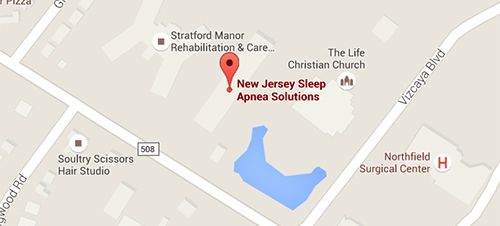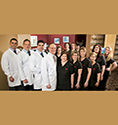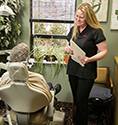What Makes a Good Night’s Sleep?
Submitted by New Jersey Snoring Solutions on Tue 10/22/2019 - 09:00

According to the results of a survey conducted by the National Sleep Foundation, more than three-fourths of individuals surveyed reported that they have a good night’s sleep at least a few nights a week. Most individuals said they sleep an average of six hours and 44 minutes on work nights, and approximately seven and a half hours on non-work nights.
So what makes a good night’s sleep? West Orange sleep specialist Dr. Ivan Stein breaks down what the survey found and what participants believe is important to getting good sleep.
Elements of a Good Sleep Experience
The National Sleep Foundation asked participants to rate the importance of several elements of their sleep experience using a five-point scale (five meant “very important” and one meant “not important at all”). Here are some of the findings:
- 93 percent rated a comfortable mattress as important
- 91 percent rated comfortable pillows as important
- 86 percent rated comfortable sheets and bedding as important
- 74 percent rated a quiet room as important
- 73 percent rated a dark room as important
- 63 percent rated fresh air and/or air free of allergens as important
- 62 percent rated a clean bedroom as important
Tips to Improve Your Sleep
Here are a few things you can do immediately to improve your quality of sleep:
Follow a consistent sleep routine. Go to bed and wake up at the same time every day, even on weekends, summer months and vacations.
Set an “electronic device curfew” for yourself. Blue light interrupts sleep. Turn off all electronic devices at least an hour before going to bed.
Practice a bedtime routine. Unwind your mind and body by practicing a relaxing bedtime routine. This could be a bath, reading a book or listening to soothing music in bed.
Make your bedroom a sleep sanctuary. Invest in a comfortable mattress, clean and fresh bed sheets and linens, and dim lighting to use right before bedtime. Do not use your bed for eating or working.
Do not eat large meals or drink caffeine late in the day. The same goes with alcohol.
Avoid exercising within three hours of your bedtime. Regular exercise is important for your health but strenuous exercise in the late evening or immediately before sleeping should be avoided.
Avoid taking long naps in the late afternoon or evening. Naps earlier in the day are okay and should not exceed 30 minutes.
If you regularly have difficulty sleeping, an underlying sleep disorder may be to blame. Dr. Ivan Stein is a renowned West Orange sleep apnea specialist who has helped many people get a better night’s rest and live healthier. To schedule an appointment with him, please call (855) WHY-SNORE or (855) 949-7667.







